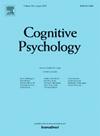Conceptualizing cognitive flexibility: Singular versus modular view – Which one holds up?
IF 3
2区 心理学
Q1 PSYCHOLOGY
引用次数: 0
Abstract
Cognitive flexibility (CF) refers to the ability to adapt thinking and behavior to new or changing demands. However, conceptions of CF disagree on its structure, whether it is a uniform or a modular ability composed of different subtypes. Within the modular view, it has also been suggested that subtypes are organized in a hierarchical structure, although perspectives regarding this organization are inconsistent. The present study aimed to explore these structural and hierarchical views by comparing a one-factor model to a three-factor model that divides CF into task switching, switching sets, and stimulus–response mapping. Additionally, the study sought to test whether these subtypes are distinct and hierarchically organized, whereby task switching is initially assumed to be the most demanding, and stimulus–response mapping the least challenging. 235 participants (126 women) took part in the study, and performed nine different CF tasks, divided equally among the 3 subtypes. Confirmatory factor analysis indicated that the one-factor model fit was not adequate in contrast to the three-factor model. The three subtypes were distinct and displayed a hierarchical organization, with switching sets being the most demanding, followed by task switching, which did not differ significantly from stimulus–response mapping. These findings support the modular view of CF, suggesting that it comprises three distinct subtypes. However, the organization of these subtypes should be understood as dynamic, rather than fixed in terms of cognitive demand. This study contributes to a more nuanced understanding of CF as a multidimensional ability.
概念化认知灵活性:单一观点与模块化观点——哪一个更站得住脚?
认知灵活性(CF)是指适应新的或不断变化的需求的思维和行为的能力。然而,CF的概念在其结构上存在分歧,它是一种统一的能力还是由不同亚型组成的模块化能力。在模块化视图中,也有人建议子类型以层次结构组织,尽管关于这种组织的透视图是不一致的。本研究旨在通过比较单因素模型和三因素模型来探讨这些结构和层次观点,将CF分为任务切换、切换集和刺激-反应映射。此外,该研究试图测试这些亚型是否不同且分层组织,因此任务切换最初被认为是最苛刻的,刺激-反应映射是最不具挑战性的。235名参与者(126名女性)参加了这项研究,并执行了9项不同的CF任务,平均分配给3个亚型。验证性因子分析表明,单因素模型与三因素模型相比拟合不足。这三种亚型是不同的,并表现出层次结构,其中切换集是最苛刻的,其次是任务切换,与刺激-反应映射没有显著差异。这些发现支持CF的模块化观点,表明它包括三种不同的亚型。然而,这些亚型的组织应该被理解为动态的,而不是在认知需求方面固定的。这项研究有助于更细致地理解CF是一种多维能力。
本文章由计算机程序翻译,如有差异,请以英文原文为准。
求助全文
约1分钟内获得全文
求助全文
来源期刊

Cognitive Psychology
医学-心理学
CiteScore
5.40
自引率
3.80%
发文量
29
审稿时长
50 days
期刊介绍:
Cognitive Psychology is concerned with advances in the study of attention, memory, language processing, perception, problem solving, and thinking. Cognitive Psychology specializes in extensive articles that have a major impact on cognitive theory and provide new theoretical advances.
Research Areas include:
• Artificial intelligence
• Developmental psychology
• Linguistics
• Neurophysiology
• Social psychology.
 求助内容:
求助内容: 应助结果提醒方式:
应助结果提醒方式:


